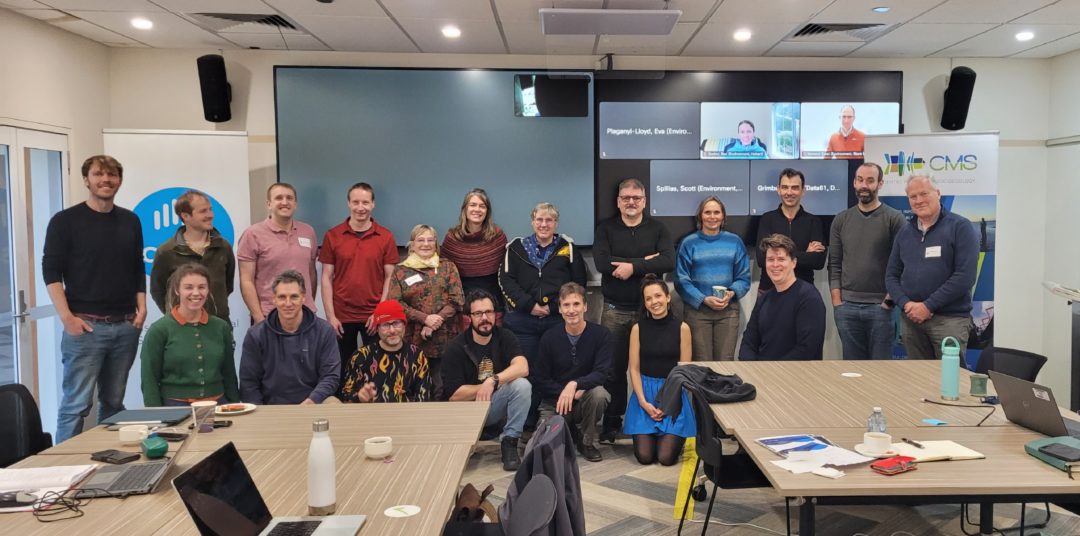The recent workshop, co-hosted by CMS, convened a diverse group of experts, including teams from various CSIRO business units, alongside researchers from the University of Tasmania, Queensland University of Technology, the University of Queensland and others. The event aimed to address the evolving role of artificial intelligence in socio-ecological modelling and to prepare the community for the changes and opportunities that are on the horizon with the advancement of AI technologies.
Participants engaged in thought-provoking sessions and breakout discussions, focusing on the strengths and weaknesses of end-to-end AI modellers, and the degree of trust that should be placed in AI. These discussions also explored the skills required to effectively work with AI in the field, how to sustain existing expertise, and the potential for specialized AI to support human efforts. Looking forward, the workshop examined strategic pathways for AI in ecosystem modelling, the possibility of unique collaborations with technology leaders, and preparations for changes anticipated over the coming years.
The workshop's primary objective was to start the conversation around how to safely incorporate AI into scientific modelling workflows, and to produce a manuscript that will provide guidance for other socio-ecological modellers. This document aims to offer a clear direction for the community as it adapts to the increasing presence of AI in research and practice, ensuring that the field remains capable of adapting to the accelerating pace of technology advance.

Image: Participants at the AI-Ecosystem Modelling Workshop in June 2024, co-hosted by CMS.


